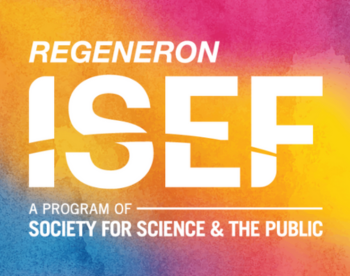The Ultimate Guide to Defending the 2024 International Science and Engineering Fair(ISEF)
[elementor-template id="1670"]
The Regeneron International Science and Engineering Fair (ISEF) is the world's largest science competition for middle school students . In 1950, the American Science Service began to hold the competition. After Intel sponsored the competition in 1998, the scale and popularity of the competition expanded. The competition was called the Intel International Science and Engineering Fair. In 2019, Intel stopped sponsoring and Regeneron began supporting the competition, which was renamed the Regeneron International Science and Engineering Fair. This competition selects a large number of outstanding scientific and technological talents every year. Many Nobel Prize winners have participated in ISEF as teenagers.
This competition annually attracts students in grades 9-12 from the United States and nearly 70 other countries and regions. For about a week, students will experience a series of activities such as busy exhibition installation, grand opening, intense defense and cultural exchanges, and carnival-like awards ceremony. Almost all students who have participated in ISEF will never forget it, and many students who have participated in ISEF will return to ISEF again as volunteers or judges.
At the exhibition site, each student worked hard to design his own booth, hoping to leave a deep impression on the judges. There are many materials and tools that students may use to set up exhibitions, which can be borrowed from the on-site service center.
Exhibition boards are the top priority of exhibition layout. The logic of content presentation on exhibition boards is often: research questions--research purposes--research methods--research results--research conclusions and future suggestions. Generally, the research results will be placed in the most important and core position.
Should ISEF defense require translation volunteers?
The defense usually lasts for one day. The subject award judges and the special award judges communicate with the students at the booth respectively. During the defense, if non-native English speaking students are worried about their language problems, they can choose to apply for a translation volunteer, and the organizing committee will try to arrange a free translation volunteer.
In the ISEF session that the author participated in, I interviewed about 10 volunteer translators and found that most of the translators were non-professionals. Some were parents of students. Because their children came to participate in ISEF, parents also registered as volunteers, and some had participated in it. College students who have passed ISEF, and some people who are interested in this.
Due to the non-professional nature of translators, it is sometimes difficult for them to understand the specific meaning of student projects and to accurately translate students’ answers to the judges. Therefore, it is recommended that students try their best to communicate with the judges in English. The judges will listen to the students' answers patiently and communicate with the students.
What will the judges ask during the ISEF defense?
According to the author’s observation, during the judges’ questioning process, most of the questions will focus on the following aspects:
How did the research question come up? What are the details of the research methods and tools used? Results and Discussion How does the evidence answer the research question?
Its fundamental goal is to examine students' innovative abilities, scientific thinking, and understanding of science. The communication time with each judge is usually 15 minutes . When the time is up, the venue will ring a bell to remind you.
Every student who participates in the defense must cherish time and strive to explain the outstanding features of his project to the judges in the shortest possible time and leave an outstanding impression on the judges. Don’t worry about the judges asking questions that are difficult to answer and thinking about filling up your time with casual communication. This will make the judges have no impression of the project and you will not get good awards.
How to prepare for the ISEF defense?
The defense lasted a whole day and required students to maintain full enthusiasm and go all out.
Before participating in the competition, because students do not know in advance what points the jury will focus on and what questions they will ask, they need to have a very clear understanding of the content of their project and the related expansion content of the project.
A student once prepared a problem set of more than 10,000 words. The questions were prepared in all aspects from the experimental process to the results, and everything imaginable was prepared. On the day of the defense, always greet each judge with a positive attitude.
What are the ISEF2024 evaluation criteria?
Evaluation criteria for scientific projects
- Research question (10 points)
Clear and focused research purpose
Identify contributions to the field of research
Can be tested using the scientific method - Design and methodology (15 points)
Well-designed planning and data collection methods
Independent and dependent variables are defined, appropriate and complete - Execution: Data collection, analysis and interpretation (20 points)
Systematic data collection and analysis
reproducibility of results
Appropriate application of mathematical and statistical methods
Collect enough data to support and explain conclusions - Creativity (20 points)
Project demonstrates significant creativity in one or more of the above criteria - Defense (35 points)
- Poster (10 points)
logical organization of material
Clarity of icons and legends
Display supporting documentation - Interview (25 points)
Provide clear, concise, and thoughtful answers to questions
Understand basic scientific knowledge and concepts related to the project
Understand the interpretation and limitations of results and conclusions
Degree of independence in carrying out projects
Recognize potential scientific, social or economic impacts
Ideas for further research
For team projects, the contribution and understanding of the project by all members
Evaluation standards for engineering projects
- Research question (10 points)
Describe the actual need or problem to be solved
Definition of proposed solution criteria
Explanation of restrictions - Design and methodology (15 points)
Explore alternatives to solve a need or problem
Solution identification
Development of prototype models - Execution: Data collection, analysis and interpretation (20 points)
Prototype shows the intended design
Prototype has been tested in various conditions/experiments
Prototype demonstrates engineering skill and integrity - Creativity (20 points)
Project demonstrates significant creativity in one or more of the above criteria - Defense (35 points)
- Poster (10 points)
logical organization of material
Clarity of icons and legends
Display supporting documentation - Interview (25 points)
Provide clear, concise, and thoughtful answers to questions
Understand basic scientific knowledge and concepts related to the project
Understand the interpretation and limitations of results and conclusions
Degree of independence in carrying out projects
Recognize potential scientific, social or economic impacts
Ideas for further research
For team projects, the contribution and understanding of the project by all members
[elementor-template id="1674"]



